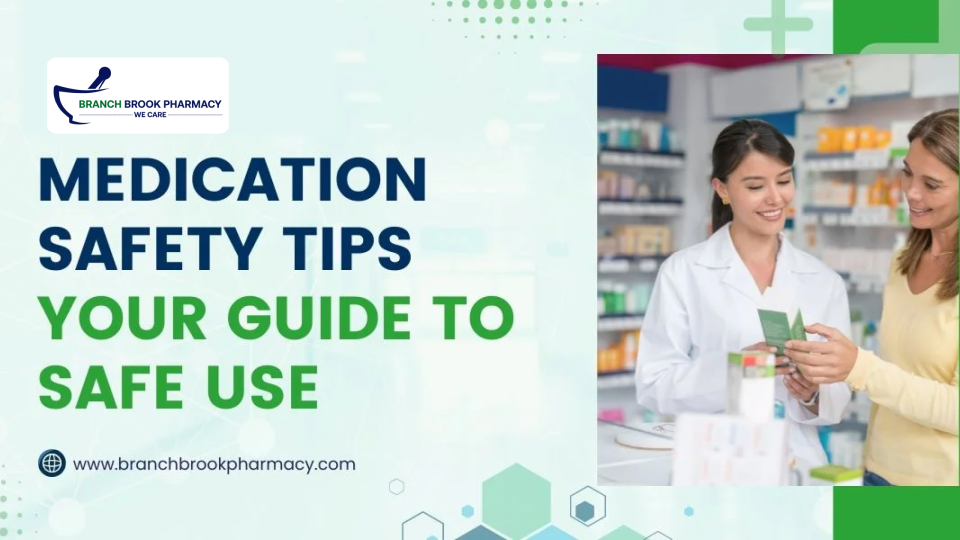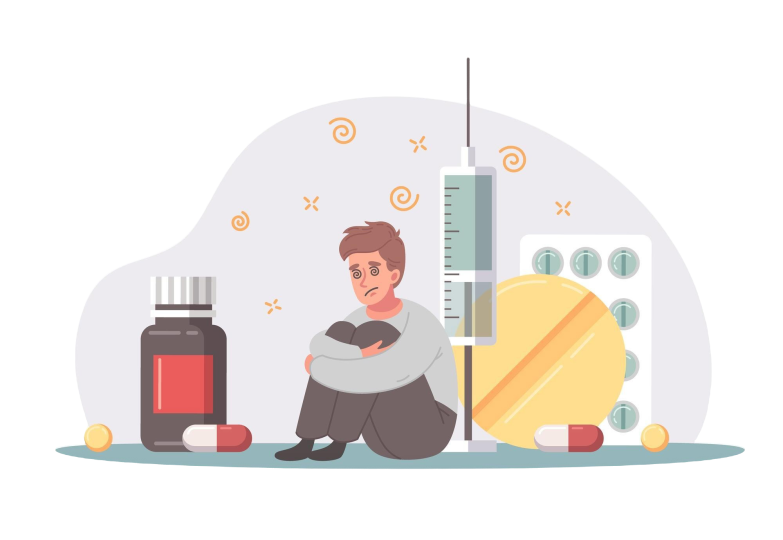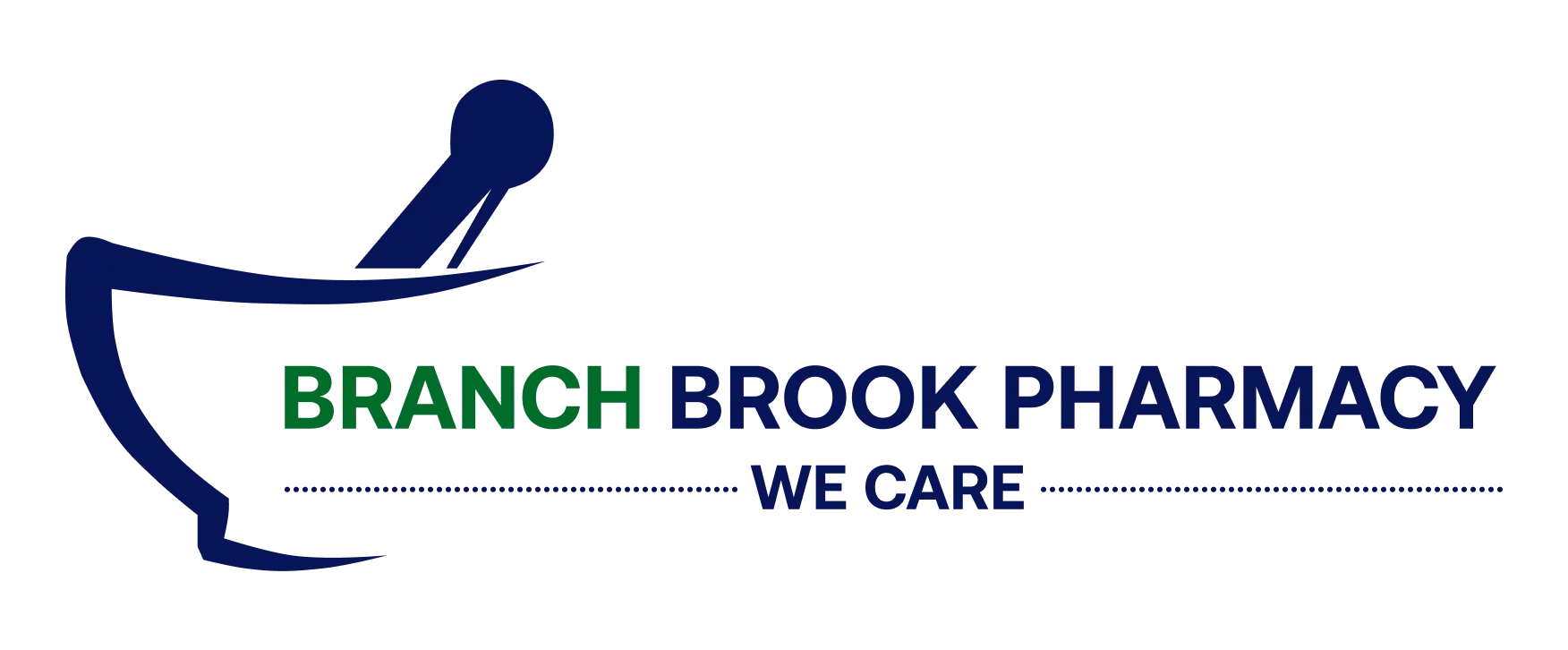
Managing medications is a critical part of staying healthy, yet many people underestimate its importance. Whether it’s prescription drugs or over-the-counter remedies, proper handling and usage of medications ensure safety and effectiveness. Medication safety is not just a healthcare protocol—it’s a personal responsibility that everyone should prioritize.
In this guide, we’ll explore essential medication safety tips, common mistakes to avoid, and actionable steps to ensure you’re managing your prescriptions effectively. By following these guidelines, you can reduce the risks associated with managing prescriptions safely and ensure a healthier lifestyle.
Understanding Medications and Their Types
Medications are substances used to treat, manage, or prevent various medical conditions. They can be classified into prescription drugs and over-the-counter options. Understanding these categories is vital for managing prescriptions safely and ensuring proper usage.
Routes of Medication Administration
Medications can be taken in various ways, including:
- Oral ingestion: Tablets, capsules, or syrups taken by mouth.
- Topical application: Creams, ointments, or patches applied directly to the skin.
- Inhalation: Inhalers or sprays for respiratory conditions.
- Injection: Administered via the bloodstream or muscles.
Each method serves specific purposes, and knowing the correct way to use them ensures safe medication use. Always consult a healthcare provider for guidance.
Common Medication Errors to Avoid
Even with advancements in healthcare, medication errors remain a common problem. These mistakes often occur due to a lack of awareness or oversight and can lead to serious consequences.
Frequent Mistakes
- Misreading Labels: Incorrectly interpreting dosage or timing instructions.
- Taking Expired Medications: Using outdated drugs can reduce their effectiveness or cause harm.
- Mixing Medications: Combining medications without proper knowledge can lead to dangerous interactions.
To prevent these errors:
- Double-check prescription details and labels.
- Keep track of medication expiration dates.
- Discuss all current medications with your doctor to avoid interactions.
These steps are part of managing prescriptions safely, a critical aspect of overall health management.
Starting New Medications Safely
When beginning a new medication, preparation, and awareness are key. Here’s how to ensure safe medication use:
- Consult Your Doctor or Pharmacist
Share your complete medical history, including allergies, chronic conditions, and past medication experiences. This helps healthcare providers tailor treatments that minimize risks.
- Understand Potential Side Effects
Be informed about common and rare side effects. Report any unusual symptoms to your doctor immediately to ensure proper medication safety.
- Avoid Self-Medication
Even seemingly harmless over-the-counter drugs can lead to complications if taken without guidance. Always seek professional advice.
- Follow Dosage Instructions
Stick to the prescribed dosage and schedule to ensure the medication works effectively.
Storing Medications Correctly
Proper storage is a key aspect of medication safety. Medications stored improperly can lose potency or become harmful.
Storage Tips
- Follow Instructions: Some medications require refrigeration, while others should be kept in a cool, dry place. Always check the label.
- Keep Out of Reach: Store medications in secure locations away from children and pets.
- Use Containers: Avoid keeping medications loose or unlabelled. Use their original containers for clarity.
These practices are essential for maintaining safe medication use at home.
Medication Safety Tips for Everyday Use
To ensure effective and responsible medication safety, follow these practical tips:
- Maintain a comprehensive list of all medications, including prescriptions, supplements, and over-the-counter drugs.
- Inform healthcare providers about all medications you take before starting new treatments.
- Always ask your pharmacist questions about dosages, interactions, and storage.
- Monitor your health closely after starting a new medication and report any changes.
- Purchase medications only from licensed pharmacies, especially when buying online. Look for approval seals and verify the source to ensure safe medication use.
Avoiding Medication Errors

Preventing medication errors requires collaboration between patients and healthcare professionals. Here’s how to stay vigilant:
- Verify Labels: Always double-check medication names, dosages, and instructions.
- Stick to Prescriptions: Never share medications or use someone else’s prescription, even if symptoms seem similar.
- Be Cautious with OTC Drugs: While over-the-counter medications are convenient, misuse can lead to adverse effects.
These practices are vital for managing prescriptions safely and avoiding unnecessary risks.
Consulting Healthcare Professionals
Professional advice is indispensable when it comes to medication safety. Whether dealing with chronic conditions, allergies, or specific health concerns, doctors and pharmacists provide tailored guidance that ensures proper treatment.
Healthcare providers:
- Assess your medical history for potential drug interactions.
- Recommend treatments suited to your unique needs.
- Offer detailed instructions for safe medication use.
Their expertise is especially crucial for vulnerable populations, such as children, pregnant women, and the elderly.
Conclusion
Medications play a transformative role in healthcare, offering solutions to countless medical conditions. However, their power comes with a responsibility for proper use. By following medication safety tips, understanding common errors, and consulting healthcare professionals, you can ensure safe and effective outcomes.
Safe medication use is a collaborative effort between patients and healthcare providers. Stay informed, ask questions, and practice responsible medication habits to protect your health and well-being. With the right approach, managing prescriptions safely becomes a simple yet vital part of your health journey.
Disclaimer: This blog is for informational purposes only and should not be considered a substitute for professional medical advice. If you suspect a stroke, seek immediate medical attention.

